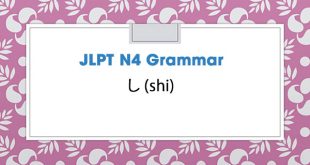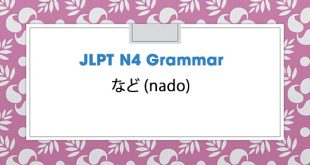もの (mono)
Meaning: because; indicates reason or excuse; indicates dissatisfaction
How to use the:
Verb-casual + (んだ)もの/もん
Noun + なんだもの/もん
いadj + (んだ)もの/もん
なadj + なんだもの/もん
Explain:
Describe the reason for your legitimacy and put it at the end of the sentence. Women or children often use in conversation Or use together with 「だった」
Example sentences:
1, 雪が降ったんだもの。行けるわけないでしょう。
Yuki ga futta nda mono. Ikeru wake naideshou.
The snow has already fallen, how can we go?
2, 母ですもの。子供の心配をするのは当たり前でしょう
Hahadesu mono. Kodomo no shinpai o suru no wa atarimaedeshou
As a mother, it is natural for you to worry about me
3, たかいんですもの、かえません。
takai ndesu mono, kaemasen.
It’s too expensive, so I cannot buy it.
4, もうすこしいたら。
Mō sukoshi itara.
A – Stay a little longer
5, いっぱいやることがあるんだもの。帰らなくちゃ。
Ippai yaru koto ga aru nda mono. Kaeranakucha.
B – I have a lot of work to do, so I have to go home
Note: Sometimes when the sound is changed to 「もん」 men and women can use it, but the audience use is young people who express their reasons for themselves.
 Learn Japanese Free Learn Japanese Free
Learn Japanese Free Learn Japanese Free







